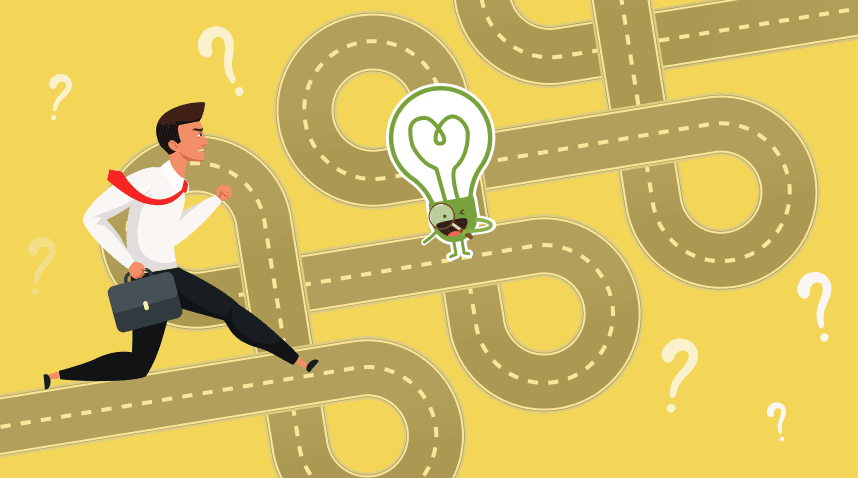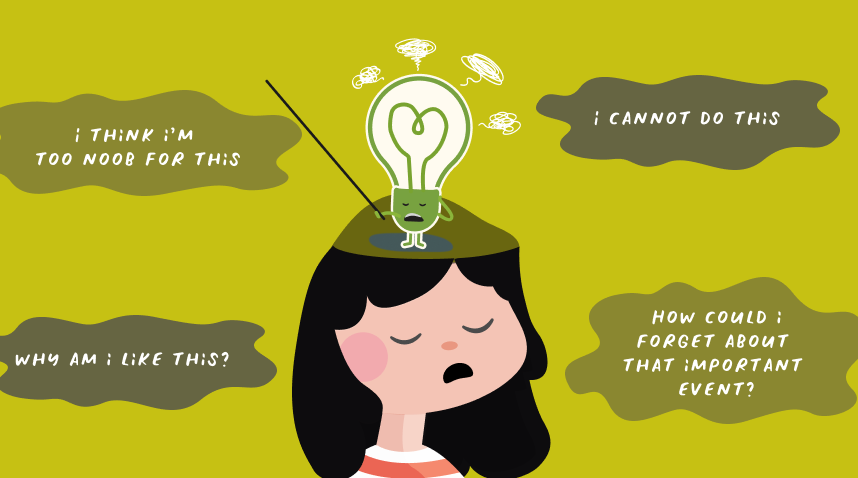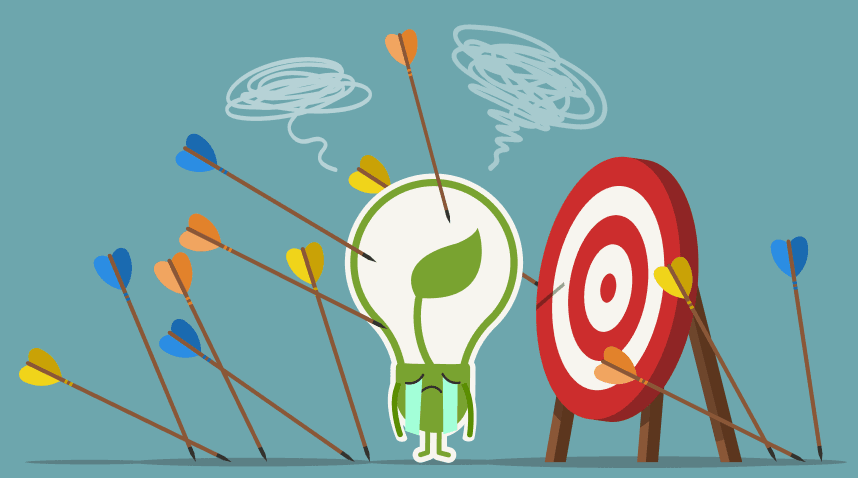TLDR: Having a set of goals to work towards gives us a sense of direction in life. Our society prizes this go-get-it attitude as a self-improvement hack; many of us strive for this mindset. However, there could be a risk of doing something just for the sake of it and we may end up beating ourselves for getting lost in the pursuit of excellence.
Many of us have been conditioned to chase something, consciously or unconsciously. We race with others to prove our worth, ever since birth – to be the first to crawl/walk/run, the top rank in class, the one to get into a famous university, the first to be office management level, the one who found ‘the one’ and have family……The list continues.
The neverending chase has been fuelled by the comparison trap we adopt from our parents, society and ourselves.
Have we ever pondered what is the source of our chasing mindset?

I was so used to the chase that I rushed from one achievement to another, not sparing time to truly soak in whatever I was doing and its outcome. After landing my first job as an accountant, I quickly enrolled on a professional certified course.
Upon completion, I thought, ‘what’s next?’. Before long, I was looking to register for a postgraduate degree.
I must admit those learnings were not in vain. I gained something out of them – both technical skills and soft skills like time-management, relational skills, self-organisation. These skills have been helpful to me in my personal and professional life. But whether or not I could use the effort on a more targeted outcome, that’s another question altogether.
To outsiders, I may look like someone with a thirst for knowledge (or paper certificate, for that matter).
Little did I know this chase was masked as self-improvement; there would always be a better thing to go for next if I don’t consciously define the outcome that I want to achieve.
This deceptive ‘self-improvement’ is not limited only to the worldly chase – I realised that I wanted to keep improving myself spiritually too. While spiritual advancement may be a sensible goal, my underlying intention was warped, at least initially.
I kept myself immersed in spiritual talks one after another. I sat meditating even when the heart refused to – just to prove that I, too, can evolve in my spiritual practice.
This spiritual chase resulted in resistance between the mind and the heart, not to mention the sense of dejection when I didn’t see the improvement I expected. Definitely not a fun experience!
The source of my chasing mindset was a sense of lacking self-worth. I wanted to prove myself a deserving human being by reaching the level that is deemed ‘good enough’. And we know that ‘good enough’ is a subjective measurement and may not serve as a good gauge.
Comparing myself today with who I was 3 years ago, for example, I can honestly say I have grown into a different and (hopefully) a better, more mature person. This is probably a better use of the comparison mind for improvement measurement.
Be kind to ourselves and others
I chanced upon an apt Dhamma talk by Venerable Ajahn Brahm on how we often hold on to ‘I need to be better’ thoughts just because everyone else thinks or expects so. Ajahn Brahm further taught that this ‘I’m not good enough’ mindset is neither kind nor helpful to ourselves.
Of course, we need to carefully distinguish between accepting ourselves with kindness and not growing out of unconstructive habits.
There could be a risk of not improving the mind under the false pretence of self-acceptance. Learn to be at peace with what we already have, then improvement would flow naturally.
Many of us may be performing good deeds and consciously express kindness to others. Doing so not only keeps the mind at peace but also elicits joy during and after the act. I identify with this definition of living a blessed life in the spirit of Mangala Sutta, when I can share and contribute what I have with others. However, with the chasing mentality, I might have forgotten about the one person who would benefit from such good deeds as well – myself.
How many times do we speak harsh words inside our head when we act less than ‘perfect’?

‘Why did you do that silly thing?’
‘How could you forget about that important event?’
‘What is wrong with you?’
I probably would not say such things to my close friends or even strangers, so why do I say them to myself? Am I unworthy of the same kindness I have so freely and joyfully shared with others?
Nowadays, I decide to contemplate my pursuits with an objective mind, even if it seems like an improvement on the surface:
‘Does this course/workshop feel aligned with the heart or is there another reason why I want to join?’
‘Do I feel joyful in learning or is it another medal on my chest to show the world?’
Suffering arises when we don’t get what we want and when we get what we don’t want

I recently read separate teaching from Venerable Ajahn Chah1 on “wanting with right understanding”. The teaching explained that desire towards and away from something can arise from us as worldly beings. I find resonance to this gentle outlook towards self and am aware that setting goals can start off my self-improvement actions – but blindly chasing and grasping the desire tightly is not right either. Instead, taking action accompanied by gradual and reflective practice would be more helpful.
For example, I started this article with the intention to write about chasing struggles. It has developed into deeper contemplation of my underlying beliefs and expanded thoughts that I am sharing now.
Trying to be mindful of my wanting and not-wanting, I do my best at the moment and allow the outcome to unfold.
I realise that telling myself to let go of expectation, is an expectation by itself – another debacle to untangle!
Rather, it is much more peaceful to put in my best effort for the situation; watch the result arise and take the next step from there.
When a learning experience concludes as expected or not, I try to take time to settle down and truly embrace the event. When another learning opportunity comes, I will then be able to jump in wholeheartedly. Even if I failed, I could learn from it. Failure is just another piece of feedback! With this outlook, I hopefully lessen the suffering created for myself.
I conclude that having a goal is necessary, especially for myself and many others who are just entering the ‘real’ life of the professional and social world.
Clarity of true motivation is essential as we take on the path, paired with conscious kindness towards ourselves when the comparison mind takes a negative turn. The next time I look at others and start to put them on the pedestal with an unreasonable expectation of myself, I will remind myself: ‘remember how far you have gone’ and ‘we all have our own path to take’.
Notes:
- Source: The Collected Teachings of Ajahn Chah – Single Volume, Aruna Publications, 2011, Chapter 22, page 237, https://forestsangha.org/teachings/books/the-collected-teachings-of-ajahn-chah-single-volume?language=English
Wise steps:
- Pair working on goals with a mindful review of underlying reason in choosing these goals, it could provide clarity on the true nature of our motivation
- When harsh reprimand arises within, ask if these are the words we will give to others
- Refrain from punishing ourselves when we could not let go immediately. Be still, the conditions for letting go will arise.


